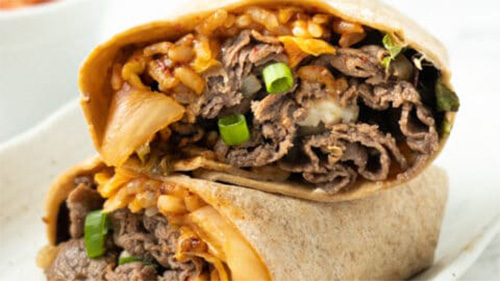The Benefits of Fermented Foods for Mood and Immunity

In recent years, fermented foods have garnered attention for their potential to improve gut health, boost immunity, and even enhance mood. Staple foods like kimchi, kefir, and miso not only add flavor to meals but are also rich in beneficial bacteria that contribute to overall health.
Microorganisms like yeast and bacteria break down dietary ingredients during the natural process of fermentation, creating healthy chemicals. This process enriches foods with probiotics (live, beneficial bacteria) that can positively impact the gut microbiome—the complex ecosystem of microorganisms that inhabit our digestive tracts.
Research has linked a diverse and balanced gut microbiome to improved digestion, immune function, and mental health. For example, a study involving nearly 10,000 participants found that consuming fermented foods like kimchi, kefir, and sauerkraut improved mood, energy levels, and appetite.
The gut-brain axis—the biochemical communication between the brain and the gastrointestinal tract—plays an important role, according to recent study. By promoting a healthy gut microbiome, fermented foods may influence neurotransmitter production and alleviate symptoms of anxiety and depression. For example, a study published in the EMBO Journal of Molecular Medicine found that probiotics in fermented foods can positively impact gut bacteria and stress-related brain function.
Fermented Foods
Kimchi
A mainstay of Korean cooking, kimchi is a tart and spicy meal prepared from fermented vegetables, usually Chinese radish and cabbage. Rich in dietary fiber and probiotics, kimchi has anti-inflammatory properties and may benefit gut health. Some studies suggest that consuming kimchi may have anti-diabetic and anti-obesity benefits.
Kefir
Kefir is a fermented dairy product similar to yogurt, but with a thinner texture and a richer variety of probiotics. It is rich in beneficial bacteria and yeasts that aid digestion and boost the immune system. Studies have shown that regular kefir consumption can stimulate the production of anti-inflammatory substances in the body, thereby improving immune function.
Miso
A classic Japanese condiment, miso is created from fermented soybeans, salt, and the Aspergillus oryzae fungus. It is often found in marinades, sauces, and soups. In addition to being high in important minerals, miso is a strong source of folate, vitamin E, vitamin K, and many B vitamins. By increasing their bioavailability, the fermentation process facilitates the body's easier absorption of these nutrients.
DIY Sauerkraut Fermentation: A Simple Start
It's enjoyable and reasonably priced to make your own fermented foods at home. To get you started, here are a few simple recipes:
Ingredients:
● 1 medium head of green cabbage
● 1 tablespoon sea salt
Instructions:
● Thinly shred the cabbage.
● Sprinkle with sea salt and massage until the cabbage releases its juices.
● Pack the cabbage tightly into a clean jar, ensuring it remains submerged in its own brine.
● Loosely cover and let ferment at room temperature for 3-10 days, tasting daily until the desired flavor is achieved.
● Once fermented, refrigerate.
Including fermented foods in your diet is both delicious and effective, helping to support gut health, boost immunity, and improve mood. Whether enjoyed as part of traditional dishes or through creative culinary experiments, these foods can naturally enhance overall health.



